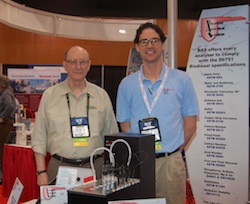Jim Iacoponi, Vice President of Operations for Propel Fuels has been appointed to the California Air Resources Board (CARB’s) Low Carbon Fuels Standard (LCFS) Advisory Panel. Alongside other qualified industry members of the panel, Iacoponi will provide guidance to CARB as they monitor and evaluate progress of the LCFS program. Propel, as California’s largest retail provider of alternative fuels such as ethanol and biodiesel, is uniquely positioned to provide CARB with key insights into the fueling habits of low-carbon fuel consumers and fleets in order to better implement the state’s carbon reduction strategies.
 “Through this panel, we aim to support CARB with market data and trends on the use of low-carbon fuels directly from our pumps and customers,” said Iacoponi. “This also provides an opportunity for all parts of this industry, from advanced fuel producers to vehicle manufacturers, to better align around California’s emissions reduction goals.”
“Through this panel, we aim to support CARB with market data and trends on the use of low-carbon fuels directly from our pumps and customers,” said Iacoponi. “This also provides an opportunity for all parts of this industry, from advanced fuel producers to vehicle manufacturers, to better align around California’s emissions reduction goals.”
According to Propel they source the cleanest, most sustainable fuels on the market that meet their cost and quality targets. As commercial scale cellulosic facilities prepare to break ground in California, the company believes their fueling infrastructure is a critical link between California’s drivers and the next generation of low-carbon fuels.
CARB held the first meeting of the LCFS Advisory Panel today in Sacramento. The panel reviewed progress towards the LCFS targets, advised CARB’s Board of Directors on advances in fuels and production technology, vehicle technologies and availability, the program’s impact on the state’s fuel supplies, and other issues.







 In this edition of
In this edition of  Coleman has been involved with the ethanol industry for over a decade, most recently as Executive Director of the
Coleman has been involved with the ethanol industry for over a decade, most recently as Executive Director of the 




